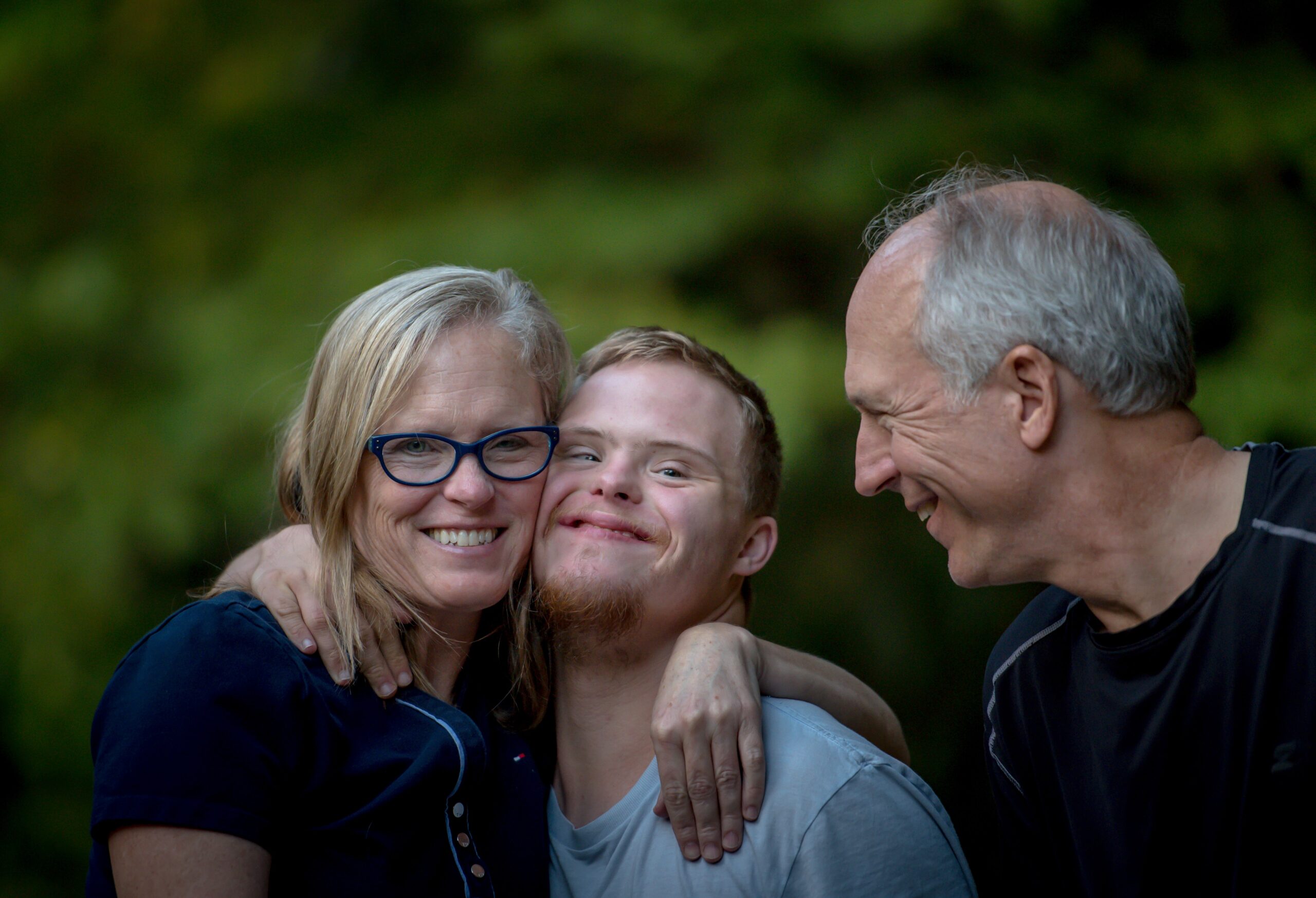Representation Agreements (RAs)
Download PDF versionRepresentation Agreements (RAs)
Jump to: Overview • Forms • Examples • FAQs • Related Information
Jump to: Overview • Forms
Examples • FAQs • Related Info
Legally reviewed. Last update made in June 2023.
Is a Representation Agreement (RA) a legal document in BC?
Yes, a Representation Agreement is a legal document in British Columbia (see the BC Representation Agreement Act).
What can you authorize in an RA?
A representative’s powers or authorities are listed in two different parts of the RA Act, called sections — section 7 and section 9. The different types of Agreements have become known as RA7 and RA9.
A Section 9 Representation Agreement (RA9) can provide the most comprehensive coverage for health and personal care matters. It does not cover any financial matters.
A Section 7 Representation Agreement (RA7) can include authorities for the routine management of financial affairs, legal affairs, minor and major health care, and personal care.
Who can make an RA?
The key difference between the RA7 and the RA9 is the capability requirements for each.
The RA9 is for adults (19+) who are considered capable of understanding the nature and consequences of the proposed RA9 at the time of making it. This is based on the traditional definition of capability that also applies to wills, types of powers of attorney, and contracts.
The RA7 is designed for adults (19+) whose mental capability to ‘understand’ is in question. The RA7 has a different definition of capability than the traditional one and is unique to RA7s.
When can an RA be used?
A Representation Agreement is a personal planning document — this means it is intended to be used while you are alive; it has no effect after you die.
An RA can come into effect immediately or upon a “trigger event”. A Representation Agreement ends if you revoke (cancel) it and when you die. An Agreement also ends if someone is appointed to be your legal guardian (in BC, called committee) – unless the court orders otherwise. See the Nidus fact sheet on Lifespan of a Representation Agreement at the Related Information section below.

RA (and related) Forms
Nidus provides both RA7 and RA9 forms.
- See RA Forms
- See Related Forms: Confirmation of Substitution Form; Resigning as a Representative or Alternate; Resigning as a Monitor; Revoking RA
Register
Securely register a copy of your RA with the Nidus Registry, a BC-based centralized digital repository with 24/7 access. Ensure you are prepared for a health crisis or other emergency.

Example – Section 7 Representation Agreement
The son makes an RA7ALLRA7ALL is a type of Section 7 Representation Agreement that includes all four authorities (health care, personal, legal, financial). Some RAs may only authorize the representative to help with health care or personal care matters. Others still, only legal and financial matters. after his 19th birthday with his parents. A representative can delegate the tasks of booking and transportation to a dental appointment to the son’s paid support staff, but the representative can not delegate consent or decisions about care or treatment.
Example – Section 9 Representation Agreement
“My mom was 91 and in hospital and, at the time, was not capable of informed consent. The medical team wanted to do brain surgery. I said ‘No, she doesn’t want that.’ They said ‘you don’t get to make that decision.’ I said ‘Yes I do’ and pulled out the Representation Agreement that my mother made. It names me as the representative.”
Mom had made an RA9 ahead of time, when she was capable of understanding.

Representation Agreement FAQs
How does the RA7 have a different definition of capability?
The traditional definition of capability (for making legal documents such as a Will, types of powers of attorney, an RA9, or a contract) requires that you must ‘understand the nature and effect’ of the specific document at the time you are making it.
This traditional definition dates back hundreds of years. It leaves out many people whose capability to meet this traditional definition can be affected by disability, illness, or injury.
For example:
- Adults who have a disability from birth (special needs, autism, fetal alcohol spectrum disorder).
- Adults who had an illness or injury during childhood (meningitis, sports or car accident).
- Adults who had an illness or injury in adulthood (severe stroke, advanced dementia, brain cancer, serious car accident or fall).
If an adult cannot meet the traditional legal definition to ‘understand,’ they are vulnerable to adult guardianship (called Committeeship in BC). Under guardianship, adults lose their decision-making rights and become a non-person.
How it the RA7 a legal alternative to adult guardianship?
One of the purposes of the Representation Agreement Act is to offer a way for adults to avoid guardianship. This is possible because the RA7 has a different definition of capability, which provides a way for adults to give legal status to personal supporters.
Just because an adult needs help with decision making, does not mean they should lose their rights and become a non-person in order to get help.
While the above statement may seem obvious to those living the experience, it is not generally reflected in the policies and practices of service systems and institutions.
What roles are available in an Agreement?
The Representation Agreement Act describes three roles. A representative is necessary, other roles are optional.
- Representative(s) – the person (or people) who has legal authority to assist you or to act on your behalf.
- Alternate representative(s) – back-up(s) in case your representative is unable or unwilling to act or continue to act.
- Monitor – a safeguard who ensures that the Agreement is working for you. A monitor does not make decisions for you and they are not like an alternate who ‘moves up.’ Only one monitor can be named in an Agreement (the law does not provide for naming more than one or for naming an alternate monitor).
- An RA7 that includes authority for routine finances will commonly include the monitor role. The law requires an extra safeguard if finances are included and a monitor meets this requirement. See Section 7 Representation Agreements for more.
What are the restrictions on who is named?
Due to amendments on September 1, 2011, the law now has some restrictions.
You cannot name an individual as your representative (or alternate), if:
- They are compensated to provide health care or personal care services to you (e.g. a paid caregiver, home share provider); or
- They are an employee of a facility where you live, if the facility provides health care or personal care services to you.
These restrictions do not apply if the individual is your spouse, parent, or child.
Agreements made before September 1, 2011 did not have these restrictions and the amendments say these Agreements may continue to be in effect and are not affected by the restrictions.
What if I made a Representation Agreement before September 1, 2011?
You may have learned about Representation Agreements from other sources or in the past.
There were amendments (changes) to the Representation Agreement Act, the Power of Attorney Act, and the Health Care Consent and Care Facility Admission Act as of September 1, 2011.
These changes brought certainty and also complexity. It makes education very challenging. We also see more confusion and misinformation. If you made a valid Representation Agreement before September 1, 2011, it is still valid—you do not have to make a new one just because of the amendments.
Some changes, such as to the duties of a representative, apply regardless of when the document was made.
Who can I name as a representative or alternate in my Agreement?
The idea of Representation Agreements is to strengthen or create a personal support network around an adult—so they have help when ill or injured and when dealing with service systems. An Agreement gives legal status to personal supporters. Most people name a spouse, family member, or friend in their Agreement.
Those you appoint may live in another city, province, or country, though you will want to consider practicalities such as time zone differences.
There are many factors to consider about who is named in your Representation Agreement, such as:
- Your relationship with them;
- Their skills and abilities;
- Their willingness to work with others named in your Agreement; and
- Their respect for your wishes and values.
Who can be named as a monitor?
To be named a monitor, an individual must be 19 years or older and willing to accept their duties. Their duties are outlined in section 20 of the Representation Agreement Act.
Although it is not restricted, it could be a challenge for someone in a paid role, related to providing services to the adult, to be named as a monitor. See the Nidus fact sheet on Role of a Monitor.
What are the duties of a representative?
The duties of a representative are outlined in section 16 of the Representation Agreement Act, which says that your representative must act honestly, in good faith, and within the law. Your representative is there to assist you to participate in decisions about you. This means they need to be contacted and involved—they need to know what is going on in case they are called in at some point to act on your behalf.
The pages on the Section 7 Representation Agreement and Section 9 Representation Agreement give examples. You can find these and more Nidus resources below. Read about duties in Role of Representative.
Does my representative get paid?
Representatives, alternate representatives, and the monitor are entitled to be reimbursed for reasonable out-of-pocket expenses related to carrying out their duties.
The law says you cannot pay a representative a fee (on top of expenses) for making health care decisions on your behalf.
If you want to pay your representative(s) a fee for other authorities, this must be spelled out in the Agreement and it must be approved by the Supreme Court of BC.
When does a Representation Agreement take effect?
A Representation Agreement should be in effect when all signing is completed, so it is ready-to-go when needed, including an emergency.
The adult and witnesses must sign together at the same time.
Others named in the Agreement will have paperwork to sign but do not need witnesses and can sign at a later time and different times.
Detailed instructions come with the forms by Nidus and, if followed, you will have a valid Agreement.
Make sure the Agreement is registered (this is your ultimate back-up and reminds you where the original is located). Never lose the original—you need it to make copies and it is proof of authority. Never make changes on your original; keep information updated in the Registry.
When should I make a Representation Agreement?
The best time to make an Agreement is before a crisis occurs. Most people will make more than one Representation Agreement in their lifetime.
What cannot be authorized in a Representation Agreement?
The RA Act says that you cannot authorize a representative:
- To do anything that is against the law.
- For example, it is against the law for anyone, other than a physician or nurse practitioner, to provide you with medical assistance in dying. You also cannot authorize your representative to request Medical Assistance in Dying (MAiD) for you from a physician or nurse practitioner if you are incapable. You must be capable of consent to request MAiD.
- To give consent to your sterilization for non-therapeutic purposes.
- To refuse consent to placement or treatment related to your mental disorder if you are involuntarily committed under the Mental Health Act.
- This is often referred to as the ‘Mental Health Act Override.’
- A representative retains their authority for decisions not related to your mental disorder.
What if I have to make changes to the Representation Agreement?
Some changes to a Representation Agreement do not make the Agreement invalid. Other types of changes require revoking (cancelling) the existing Agreement and making a new one. See the Nidus fact sheet on Making Changes.
Can I revoke/cancel my Representation Agreement?
Yes, you (the adult) can revoke (cancel) your Representation Agreement. The RA Act outlines procedures for revoking. Making a new Agreement does not automatically revoke a previous one. See the Nidus fact sheet on Revoking an Agreement.
Can a representative resign?
Yes, a representative, alternate or monitor may resign from the Agreement they are named in. Sometimes this may require the adult to make a new Agreement. See the Related Information section below for relevant fact sheets.
When does a Representation Agreement end?
A Representation Agreement ends if you revoke (cancel) it and when you die. An Agreement also ends if someone is appointed to be your legal guardian (in BC, called a committee). See Lifespan of a Representation Agreement.
What role does Nidus play?
Nidus is committed to providing accurate and up-to-date information about the law and practical aspects of planning.
Nidus also produces policy analysis to share experiences, of what is and is not working, with government and professional bodies.
Nidus is a resource to professionals, including lawyers, as they also have education needs.
However, operating on bits of project funding for many years has put a strain on our ability to build and maintain core programs. Nidus does not want to put limits on our education services, especially as needs increase. See here for ways to help.
RELATED INFORMATION
Types of Representation Agreements
Section 7 Representation Agreement
Section 9 Representation Agreement
Roles
Role of Representative (PDF)
Resigning as Representative or Alternate (PDF)
Resigning as Monitor (PDF)
More Detail
Lifespan of a Representation Agreement (PDF)
Amendments and RAs made before Sept 1, 2011 (PDF)
Routine Management of Financial Affairs (PDF)
Comparison Chart for Financial and Legal Affairs (PDF)
Use & Tips
Access to Information and RAs (PDF)
Making Changes to RA (PDF)
Confirmation of Substitution Form (PDF)
Revoking a Representation Agreement (PDF)
Documents Made Outside BC
More Languages
個人規劃和代表協議書單張 Chinese translation (PDF)
Está Usted Preparado – Spanish translation (PDF)
Legislation
Representation Agreement Act (BC)
Representation Agreement Regulation (BC)
SIGN UP FOR NEWSLETTER
Stay updated on the latest developments, resources, and more.
© 2025 Nidus Personal Planning Resource Centre. All rights reserved.

